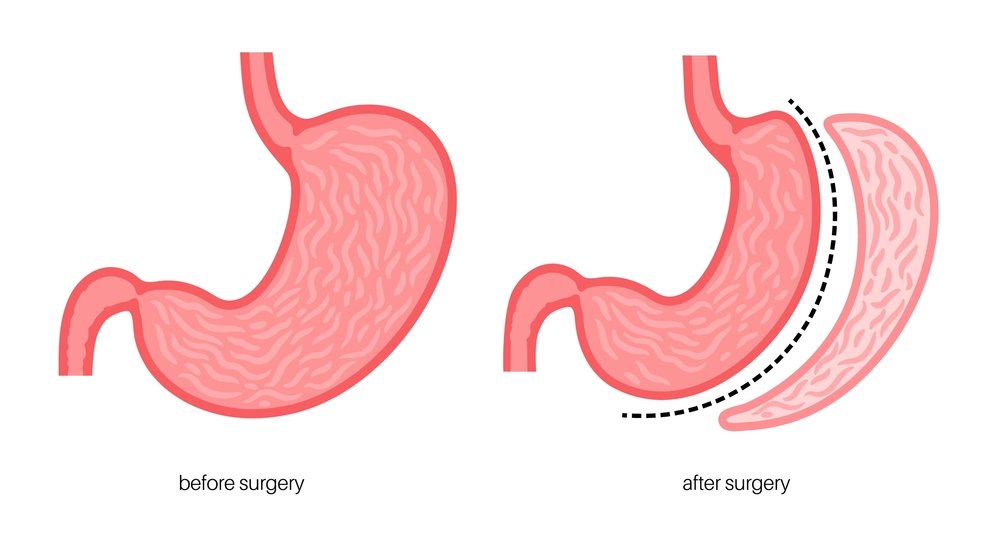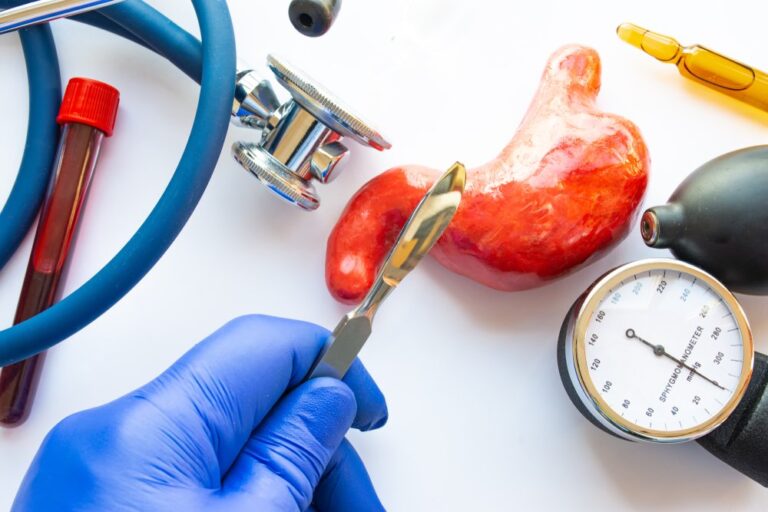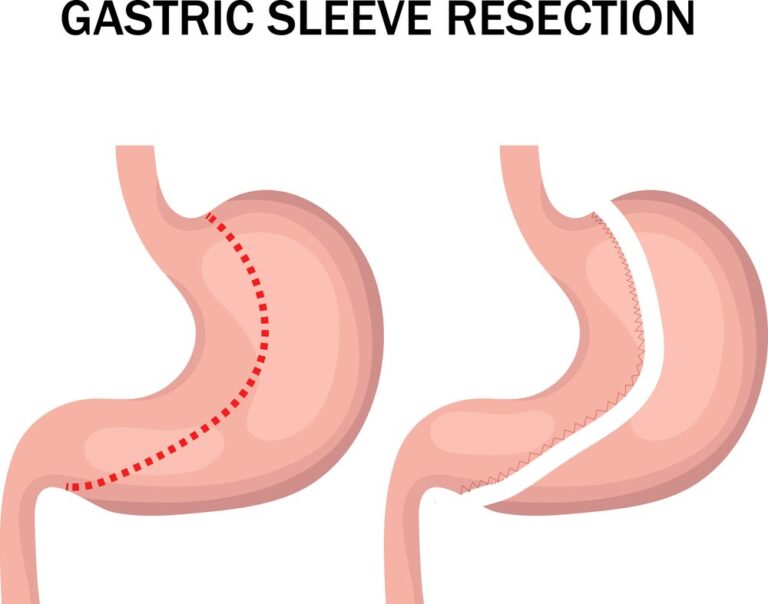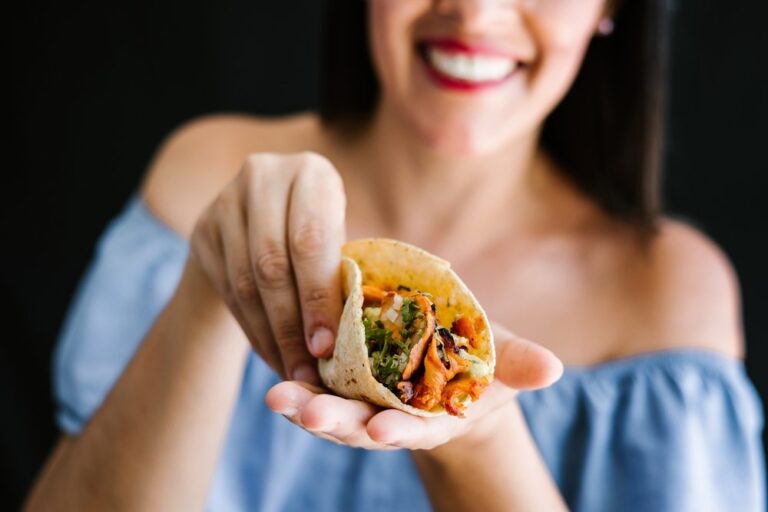“When can I eat pizza after gastric sleeve” becomes a common question. Your dietary habits will need to change significantly to promote healing, weight loss, and prevent complications. During the initial stages, you will start with a liquid diet and gradually progress to pureed foods, soft foods, and eventually solid foods. It may take several weeks to months to reintroduce solid foods, including pizza. It is important to consume pizza sparingly due to its high fat and carbohydrate content.
When incorporating pizza back into your diet, opt for healthier options such as thin crust, reduced-fat cheese, and plenty of vegetables. Start with a small portion and monitor your body’s response. It’s important to note that consuming high-fat, high-sugar, or high-carb foods after gastric sleeve surgery may trigger symptoms like nausea, vomiting, and diarrhea, known as “dumping syndrome.”
Get a $1000 Off on Gastric Sleeve in Miami
How many slices of pizza can you eat after gastric sleeve
After gastric sleeve surgery, the size of your stomach is significantly reduced to limit your food intake and promote weight loss. Given this reduction, your ability to consume large quantities of food, including pizza, will be severely limited.
Once you have successfully transitioned to solid foods (which typically occurs several months post-surgery), you might be able to tolerate a small amount of pizza. However, you would likely only be able to eat a very small portion – perhaps a quarter or half of a standard slice – before feeling full.
Furthermore, it’s important to note that pizza is often high in fat and carbohydrates and low in protein, which is not the ideal nutritional composition for your diet after gastric sleeve surgery. You’ll be advised to focus on protein-rich foods and to limit your intake of high-fat and high-carb foods.

If you do choose to eat pizza, it’s recommended to opt for versions with thinner crusts, low-fat cheese, and plenty of vegetables for toppings. Avoid high-fat toppings like pepperoni and extra cheese.
Stages of Food Progression After Surgery
After gastric sleeve surgery, your diet will progress through several stages as your body heals and adjusts to the changes. The specific progression may vary depending on your surgeon’s recommendations and individual circumstances, but here’s a general outline of the stages of food progression after gastric sleeve surgery:
- Clear Liquid Diet: Immediately after surgery, you’ll start with a clear liquid diet, which includes fluids that are transparent and free of any solid particles. This typically includes water, broth, sugar-free gelatin, and clear protein drinks. This stage helps to prevent dehydration and provides essential fluids.
- Full Liquid Diet: As your surgeon approves, you’ll transition to a full liquid diet. This includes smooth and blended foods that are still in a liquid or pureed form, such as protein shakes, milk, yogurt, pureed soups, and strained creamed soups. It’s essential to consume enough protein during this stage to support healing.
- Pureed Diet: Once you can tolerate full liquids, you’ll progress to a pureed diet. This involves consuming foods that are blended to a smooth, baby food-like consistency. Examples include pureed vegetables, fruits, lean proteins, and cottage cheese. Gradually introduce new foods and textures, ensuring they are well-pureed and easy to swallow.
- Soft Diet: After your surgeon approves, you can start incorporating soft, easy-to-chew foods into your diet. These include cooked vegetables, tender meats, fish, eggs, and soft fruits. Ensure that foods are well-cooked and easy to chew without causing discomfort.
- Solid Diet: Once you have successfully tolerated soft foods, you can slowly reintroduce solid foods into your diet. Focus on consuming lean proteins, whole grains, fruits, vegetables, and low-fat dairy products. Remember to chew your food thoroughly and eat small, frequent meals.
It’s important to note that the progression from one stage to the next varies for each individual and is typically guided by the recommendations of your healthcare team. Follow their instructions carefully, listen to your body’s signals, and make gradual changes to your diet to ensure a successful and healthy recovery.
Guidelines for Incorporating Pizza into the Diet
When considering incorporating pizza into your diet after gastric sleeve surgery, it’s important to approach it with caution and follow the guidelines provided by your healthcare team. Here are some general recommendations:
- Wait Until the Solid Diet Stage: It’s typically advisable to wait until you have reached the solid diet stage and have successfully tolerated other solid foods before introducing pizza.
- Choose a Small Portion: Start with a small portion of pizza, such as a quarter or half of a regular slice, and assess your tolerance. Pay attention to how your body reacts and stop eating if you feel full or uncomfortable.
- Opt for Healthier Options: Select healthier versions of pizza to make it more suitable for your post-surgery diet. Choose thin crust options instead of deep-dish or stuffed crust, opt for a whole wheat or cauliflower crust if available, and go for toppings that are lower in fat and calories, such as vegetables or lean proteins.
- Chew Thoroughly and Eat Slowly: Take small bites and chew your food thoroughly before swallowing. Eating slowly allows you to savor the flavors and helps prevent overeating.
- Portion Control and Moderation: Keep in mind that pizza is typically high in calories, fat, and carbohydrates. Limit your portion size and consider it an occasional treat rather than a regular part of your diet.
- Balance Your Meal: Accompany your pizza with a side of salad or vegetables to increase the nutritional value of the meal and promote a feeling of fullness.
- Listen to Your Body: Pay attention to your body’s signals and stop eating if you feel full or uncomfortable. Remember, your new stomach size will restrict the amount of food you can consume.
Always consult with your healthcare team, including your surgeon and dietitian, before incorporating pizza or any other foods into your diet after gastric sleeve surgery. They can provide personalized guidance based on your specific needs and monitor your progress to ensure optimal health and weight loss.

Modifying Pizza for Easier Consumption and Digestion
If you’re considering incorporating pizza into your diet after gastric sleeve surgery, it’s important to modify it to make it easier to consume and digest. Here are some tips to make pizza more suitable for your post-surgery needs:
| Modification Tips for Easier Pizza Consumption After Gastric Sleeve Surgery |
|---|
| 1. Choose Thin Crust |
| Opt for pizzas with thin crusts to reduce calorie and carbohydrate intake. |
| 2. Select Lean Protein Toppings |
| Opt for grilled chicken, turkey, or seafood instead of high-fat toppings. |
| 3. Load Up on Vegetables |
| Include tomatoes, onions, bell peppers, mushrooms, spinach, or artichokes. |
| 4. Use Reduced-Fat Cheese |
| Choose reduced-fat or part-skim cheese options to reduce overall fat content. |
| 5. Control Portion Size |
| Start with smaller portions and cut the pizza into smaller pieces. |
| 6. Chew Thoroughly |
| Take small bites and chew your food thoroughly before swallowing. |
| 7. Pair with Salad or Vegetables |
| Include a side of salad or steamed vegetables to add fiber and nutrients. |
Importance of Following Dietary Guidelines for Successful Recovery
Following dietary guidelines after gastric sleeve surgery is crucial for a successful recovery and long-term weight loss. Here are some reasons why it’s important to adhere to these guidelines:
- Optimal Healing and Recovery: Proper nutrition supports the healing process after surgery, allowing your body to repair tissues and regain strength. Following the recommended dietary guidelines ensures you’re providing your body with the essential nutrients it needs during this critical phase.
- Weight Loss and Long-Term Success: Gastric sleeve surgery is intended to help you achieve significant weight loss and improve your overall health. Adhering to the dietary guidelines is essential for maximizing weight loss and maintaining a healthy weight in the long run.
- Prevention of Complications: Following the dietary guidelines helps reduce the risk of postoperative complications such as leakage, nutrient deficiencies, and gastrointestinal distress.
- Adapting to a New Lifestyle: Gastric sleeve surgery requires significant lifestyle changes, including modifications to your eating habits. By following the dietary guidelines, you establish new patterns and develop healthier habits that can support long-term success and improve your overall well-being.
- Nutritional Balance and Adequate Intake: The dietary guidelines are designed to ensure you’re getting the necessary nutrients while avoiding excessive calories, fats, sugars, and processed foods. This helps you achieve a balanced diet and meet your nutritional needs, even with a reduced stomach size.
- Stabilizing Blood Sugar Levels: Following the dietary guidelines can help regulate blood sugar levels and prevent spikes or drops in glucose. This is particularly important for individuals with conditions like diabetes or insulin resistance.
- Professional Guidance and Support: Your healthcare team, including your surgeon and dietitian, will provide you with personalized dietary guidelines based on your specific needs and progress.
Remember, the dietary guidelines are tailored to your unique situation and are designed to optimize your health and weight loss outcomes. It’s essential to consult with your healthcare team and follow their instructions to achieve the best possible results and maintain your overall well-being.
Professional Guidance for Balanced and Healthy Eating Habits
Seeking professional guidance for balanced and healthy eating habits is highly recommended, especially after undergoing gastric sleeve surgery. Here are some reasons why professional guidance is important:
- Personalized Recommendations: Every individual’s nutritional needs and health goals are unique. A registered dietitian or nutritionist can assess your specific needs, taking into account factors like your weight, medical history, activity level, and any specific dietary restrictions.
- Post-Surgery Support: Professional guidance is crucial during the post-operative period when you’re transitioning through various diet stages. A dietitian can provide you with a structured plan that gradually reintroduces different foods and monitors your progress to ensure a smooth recovery.
- Prevention of Nutritional Deficiencies: After gastric sleeve surgery, your stomach size is reduced, which limits the amount of food you can consume. This makes it crucial to focus on nutrient-dense foods to prevent deficiencies.
- Managing Special Dietary Needs: If you have specific dietary needs or medical conditions like diabetes, high blood pressure, or food allergies, a registered dietitian can help develop a meal plan that accommodates these requirements.
- Behavioral and Emotional Support: Eating habits are not just about nutrition; they also involve behavioral and emotional factors. A dietitian can provide guidance on mindful eating, portion control, and strategies to develop a healthy relationship with food.
- Accountability and Monitoring: Regular follow-ups with a dietitian provide accountability and ongoing monitoring of your progress. They can assess your dietary intake, review your weight loss trends, and make necessary adjustments to optimize your outcomes.
Remember, a registered dietitian or nutritionist with experience in bariatric nutrition can provide evidence-based guidance specific to your needs. Collaborating with them will help you navigate the post-surgery journey, achieve your weight loss goals, and maintain a balanced and healthy diet for long-term success.
References:
- Clapp, J. (2022). Can I Eat Pizza After Gastric Sleeve Surgery? Healthline. Retrieved Jan 6, 2022
- Johns Hopkins Medicine. (2021). Gastric Sleeve Surgery (Sleeve Gastrectomy). Retrieved Jan 7, 2021






